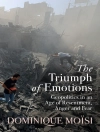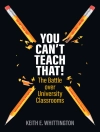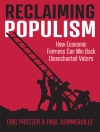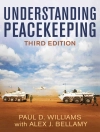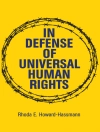Russian novels, poetry and ballet put the country squarely in the European family of cultures and yet there is something different about this country, especially in terms of its political culture. What makes Russia different?
Maxim Trudolyubov uses private property as a lens to highlight the most important features that distinguish Russia as a political culture. In many Western societies, private property has acted as the private individual’s bulwark against the state; in Russia, by contrast, it has mostly been used by the authorities as a governance tool. Nineteenth-century Russian liberals did not consider property rights to be one of the civil causes worthy of defending. Property was associated with serfdom, and even after the emancipation of the serfs the institution of property was still seen as an attribute of retrograde aristocracy and oppressive government. It was something to be destroyed – and indeed it was, in 1917.
Ironically, it was the Soviet Union that, with the arrival of mass housing in the 1960s, gave the concept of private ownership a good name. After forced collectivization and mass urbanization, people were yearning for a space of their own. The collapse of the Soviet ideology allowed property to be called property, but not all properties were equal. You could own a flat but not an oil company, which could be property on paper but not in reality. This is why most Russian entrepreneurs register their businesses in offshore jurisdictions and park their money abroad.
This fresh and highly original perspective on Russian history will be of great interest to anyone who wants to understand Russia today.
Зміст
* Acknowledgements
* Foreword – Alexander Etkind
* Introduction: The Tragedy of Property
* Chapter 1. The Entrance
* 1. Homeless people
* 2. From city dwellers to citizens
* 3. Reflected modernity
* 4. The capital of succeeding generations
* Chapter 2. The Fence: Russian Title
* 1. Good fences make good neighbours
* 2. The permanence of the fence
* 3. Life without property rights
* 4. Russian title
* Chapter 3. Behind the Fence: the Privatization of Utopia
* 1. Private palaces
* 2. The privatization of Utopia
* 3. The birth of private life
* 4. The Dutch carpenter’s house
* Chapter 4. Private Property: My Home Is My Castle
* 1. The myth of Sparta
* 2. The domus of our forebears
* 3. Mine and ours
* 4. Life, liberty and property
* 5. Christianity and Utopia
* 6. Utopia without property
* Chapter 5. Territory: Ambitions of Colonialism and Methods of Subjugation
* 1. Yermak the Conquistador
* 2. Stewardship and extraction
* 3. A natural resource irony of history
* Chapter 6. The Lock on the Door: the Priority of Security
* 1. The collapse of monarchy in the West
* 2. Success in the East
* 3. Control as the top priority
* 4. Security as a threat
* Chapter 7. Labourers: Moral Economics and the Art of Survival
* 1. The plough, the scythe and the axe
* 2. Moral economics
* 3. The commune against the private farmer
* 4. Dictatorship of the collective
* Chapter 8. Masters: the Tragedy of Domination
* 1. Owners and rulers
* 2. ‘Let not the nobility be dispossessed of their estates without due process of law’
* 3. The birth of free people
* 4. Traduced and sacred law
* 5. The attempt to share
* Chapter 9. Architecture, Happiness and Order
* 1. The project we live in
* 2. Stalin’s orders
* 3. Khrushchev’s social revolution
* 4. Happiness and order
* 5. Russian order
* Chapter 10. Our Half-built Home
* 1. Favour from the tsar
* 2. Property without the market
* 3. A market without property
* Chapter 11. Two Options: Finish Building the Home, or Emigrate
* 1. Property without property rights
* 2. Democracy without the rule of law
* 3. Law enforcement without the rule of law
* 4. The open door
* Afterword
* Notes
* Index
Про автора
Maxim Trudolyubov is a Senior Fellow at the Kennan Institute and the Editor-at-Large of Vedomosti, an independent Russian daily. He is also Director of Research at the independent think tank In Liberty.ru, Moscow, and a contributing opinion writer for The New York Times International Edition.


